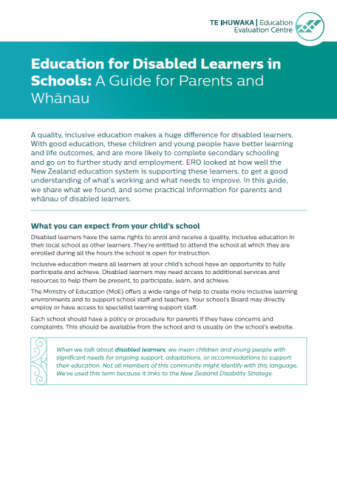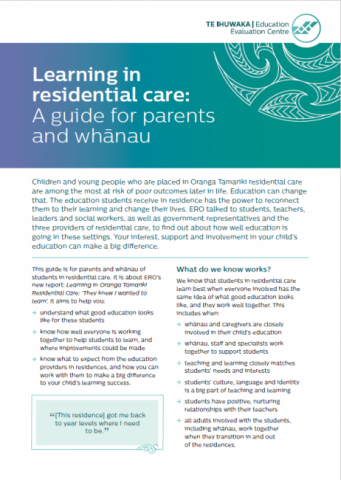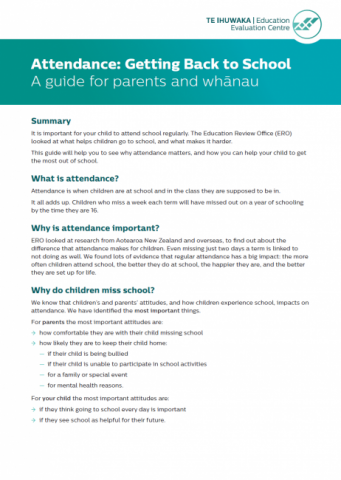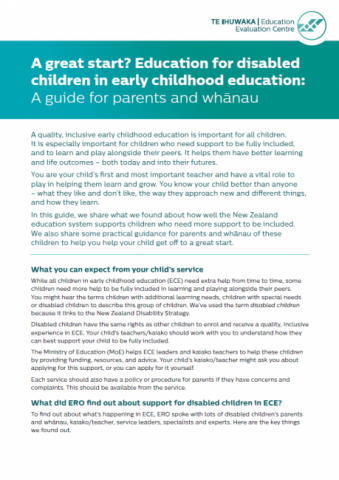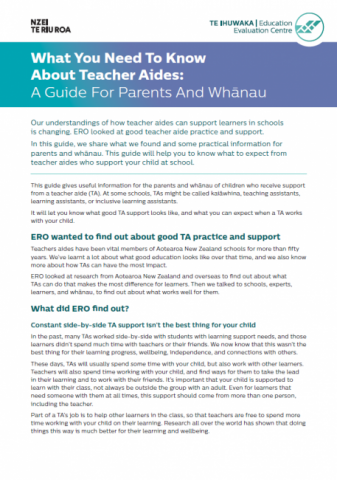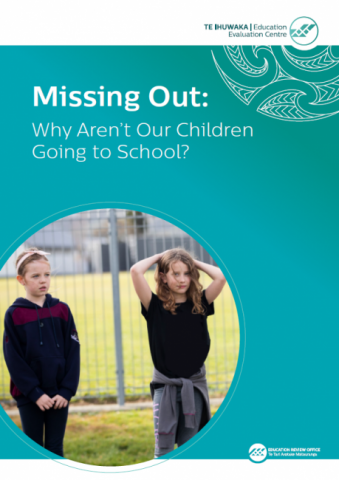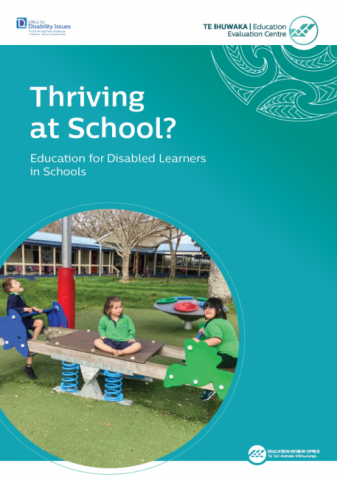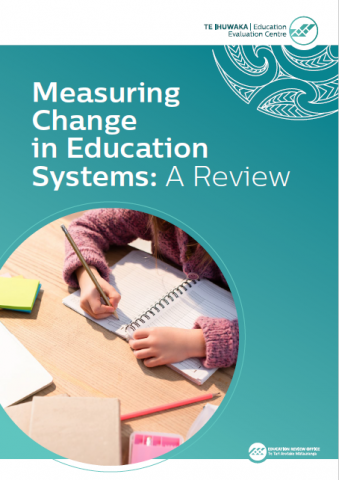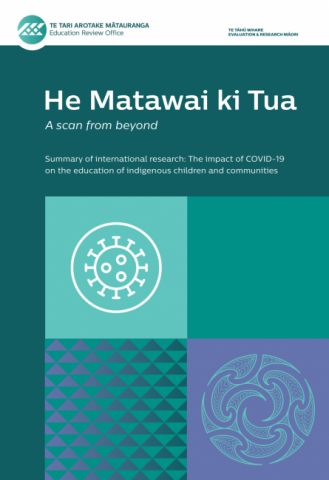Education for Disabled Learners in Schools: A Guide for Parents and Whānau
Published: 28 Sep 2022
A quality, inclusive education makes a huge difference for disabled learners. With good education, these children and young people have better learning and life outcomes, and are more likely to complete secondary schooling and go on to further study and employment. ERO looked at how well the New Zealand education system is supporting these learners, to get a good understanding of what’s working and what needs to improve.
- Audience:
- Academics
- Education
- Parents
- Schools
- Content type:
- Research
